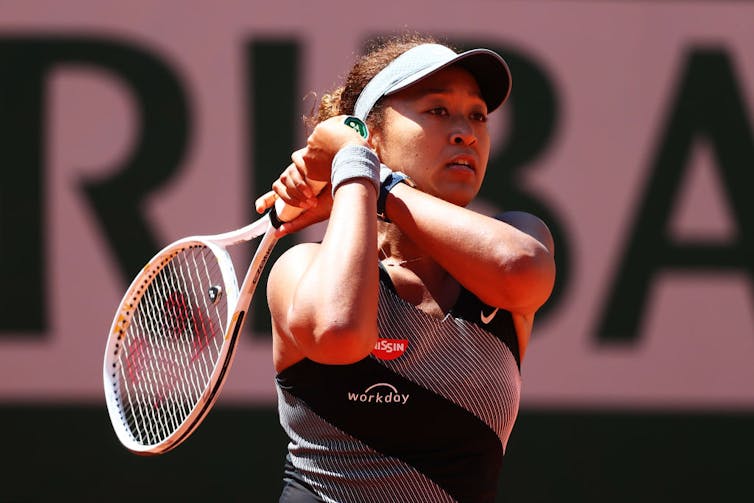On June 5, 2024, the Boston Red Sox placed relief pitcher Chris Martin on the 15-day injured list. It’s not for sore shoulders, tight elbows, or groins.
It was for suspense.
Historically, MLB’s injury list has been used for players with physical injuries. If players missed time due to mental health issues, explanations given to the media and public were often vague with the idea of ”personal reasons”.
When players opened up about their struggles, many reporters and fans criticized and questioned these diagnoses. In 2009, The New York Times published an article citing a psychiatrist who doubted that a professional baseball player suffered from social anxiety disorder.
“In baseball, most of the time you don’t hit, sometimes you make mistakes. You learn to overcome it,” the psychiatrist told the newspaper. “Someone with social anxiety disorder would never play.”
A lot has changed since 2009. Focusing on providing professional athletes with access to mental health care.
The NBA launched its own mental health program in 2018, requiring each team to have a licensed mental health professional for players and staff. The NFL requires teams to have a behavioral health physician on site at least twice a week.
But what do fans think? Are athletes with mental health problems considered weak? Are they uncomfortable?
In a series of studies, my colleagues and I looked at how fans responded when athletes openly talked about their mental health struggles and even missed time because of them.
Expectations of mental “toughness.”
Despite progress over the last couple of years, many people still find it difficult to talk about their mental health in the workplace.
According to the 2022 Global Survey, 58% of respondents feel uncomfortable discussing their mental health issues at work. Many of them fear punishment for their struggle.
In sports, the situation can be even worse.
Mental health problems are more common in elite athletes than in the general population, and this is due to the sports culture that emphasizes mental toughness. Regular treatment for physical injuries is considered part of the job. But seeking help for mental health problems is a sign of weakness.
This cultural stigma prevents athletes from talking about their mental health. Some of them may fear rejection and disbelief from teammates and fans. Others may worry about losing sponsorship opportunities or bigger contracts. The lack of mental health literacy among many athletes and coaches is an additional barrier.
However, that narrative is slowly changing in recent years thanks to high-profile athletes like Kevin Love, DeMar DeRosa, A’jah Wilson and Michael Phelps who have struggled with their mental health. Their stories, broadcast in the media and on sports networks, have helped the public recognize that these admired athletes are just as susceptible to mental health issues as anyone else.
Turning point
Tennis star Naomi Osaka has pulled out of the 2021 French Open for mental health reasons, marking a landmark moment.
Grand Slam organizers fined Osaka, banned her from the tournament and threatened further bans if she didn’t meet her media obligations, prompting Osaka to pull out.
This decision caused a heated debate. Various media outlets and fans criticized Osaka, arguing that managing the media role as a professional athlete was part of her job.
However, some celebrities such as Serena Williams and Martina Navratilova have praised her for making her mental health a priority. One of his main sponsors, Nike, publicly supported his decision and stood by him during the controversy.
In a 2022 study, we analyzed social media reactions to Osaka’s actions. On Twitter, now known as X, we were surprised by the outpouring of support: 51% of all related posts and responses applauded his decision. Only 19% had a negative opinion, while the remaining 30% were neutral.

Julian Finney / Getty Images
Osaka appeared on the cover of Time magazine not because she won another Grand Slam, but because she sparked a broader conversation about mental health in sports. Later that summer, gymnast Simone Biles withdrew from the women’s gymnastics competition at the Tokyo Olympics due to mental health concerns.
Osaka’s actions also prompted a change in league governance. The Grand Slam committee, which fined him for not holding a press conference at the 2021 French Open, has continued its commitment to tackling player mental health.
Humanizing athletes
In our most recent study, we wanted to explore how fans perceive athletes who disclose their mental health issues versus athletes who talk about their physical injuries.
Was there any truth to the stigma that some athletes and coaches fear?
We presented two scenarios to 255 participants living in the United States. One was an athlete who took a break due to a mental health condition. In the other, the athlete took time off to heal an injury.
The difference in conditions was the reason for the athlete’s leave. Participants were randomly assigned to one of two conditions. After reading the scenario they were given, they indicated how warm they felt about the athlete and how competent they thought the athlete was.
Based on our findings, fear of backlash is largely unfounded.
In fact, respondents felt more warmth toward athletes with mental health issues. They also found them to be as capable of performing as athletes with physical injuries.
In other words, fans seem to value athletes who initiate these difficult conversations and prioritize their mental well-being. For players who fear losing their sponsorship deals due to public disclosure of their mental health issues, fans see them as kinder and friendlier, increasing their appeal as brand ambassadors.
That’s exactly what happened to Chris Martin.
The fans, the team and the media were very supportive. Club manager Alex Cora applauded Martin for being open about his struggles, as did chief baseball officer Craig Breslow.
Clearly, the tide is turning for me. Athletes no longer have to suffer in silence.
#Pro #athletes #scoring #points #fans #reveal #mental #health #battles


